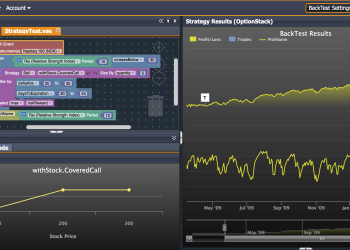Customer Relationship Management (CRM) system enables you to collect and store all customer data, improve communication processes through all channels, and individualize the interactions which finally result in customer loyalty and sales increase.
Integrating your chosen CRM with your Shopify store opens up the possibilities of unparalleled synergy, where the customer journey from first touchpoint to purchase and beyond is viewed in a single perspective.
What are the Benefits of Shopify CRM Integration
- Enhanced Customer Insight: Integration which is more than just Shopify is the one that pulls customers’ data (purchase history, interactions and preference) from the CRM system, and gives a unified view of each customer. Through this bird’s eye view, you will be able to see your clients in their totality and customize your marketing campaigns with pinpoint accuracy as well as you will be able to adjust your product offerings to client-centric niches.
- Improved Sales and Marketing Efficiency: This simplified approach, not only aids your sales and marketing activities, but it also makes them easier. Automation of tasks for instance, sending out personalized email campaigns based on purchase history or triggering follow-up emails when a buyer abandons the cart will allow your team to have more time for strategic initiatives. Try this out – divide your customers into different groups for tailored offers, generate leads using personalized emails, or display charts with your top clients.
- Personalized Customer Service: With centralized client data, an AI chatbot representative can easily access a comprehensive client history with only a few clicks. Thus, with regard to faster resolution times of customer queries and better-informed interactions that are able to address customer concerns more appropriately, this is the case. Personalized service is a factor that helps to build trust and therefore is a foundation of a positive customer experience, which then results in higher customer satisfaction and loyalty.
- Data-Driven Decision Making: Integration of these tools will give you an all-around perspective on your customer data performance and sales. Imagine a device that aids in understanding customer behavior, monitoring campaign success, and creating sales data, respectively. Therefore, this data-driven strategy can empower you to make decisions that are based on data, regarding marketing strategies, new product innovations, resource allocations, and ultimately the direction of your business.
- Improved Customer Retention: The process of data analysis, namely including the customers’ behavior and preferences, allows for communications and promotions, which in its turn increases customer satisfaction and loyalty. Therefore, it is proactive that creates a loyal customer base as well as which makes them to come back again and again to the market the key factor for long-term growth in a hotly competitive eCommerce space.
Selecting Shopify Best CRM Platform
Selecting the perfect CRM for your Shopify store requires careful consideration of several factors:
- Business Needs: Prioritizing the specific needs is the fundamental part. What is it that you mainly do: bringing in new clients, attending to leads, or help solve customer issues? Does your business require features like lead scoring, great automating ability, or advanced reporting features? Modify your choice to support the achievement of your business-related aims.
- Budget: CMR solutions capture all kinds of budgeting constraints. Whiles the free versions come with basic features, the premium are usually enterprise-level options with an extensive set of capabilities. Choose the solution that is within your budget and has all the functions your business requires to reach the set goals. Just keep in mind that a few free tiers may have user and data storage limitations, and so you will need to consider the likely future growth in your decision-making process too.
- Scalability: Take your trajectory in mind. Pick a CRM that can be expanded as your business grows to face next challenges. What kind of plans will be required if the team grows? Is the CRM provider able to meet your needs with their tiered plans or you need to upgrade when your business comes of age?
- Ease of Use: Front end of the website must be user-friendly and convenient for both your marketing and sales teams. CRM penetration will be greater if the technology is friendly and usable. Make sure CRM has simple yet efficient user interfaces, well-structured dashboards and training materials so you are able to adapt to the system quickly.
- Integration Capabilities: The flawless merging with your Shopify store is a must in this case. If possible, native integrations or solutions that are connected through verified third-party app marketplaces should be looked out for. Native integrations give the most simple experience, whereas third-party apps come from reliable developers, so there should be no issues with these.
Top CRM Options For Shopify Integration
Having explored the key selection criteria, let’s delve into some of the leading CRM solutions that integrate effectively with Shopify stores. Now having given the selection criteria, let’s now linger into some of the best CRM solutions that integrate perfectly with Shopify stores:
- HubSpot CRM: The platform has an easy-to-use interface and also integrates with other products, like CRM, content management system and marketing automation, forming a marketing and sales system. A free tier, on the one hand, can have the detrimental effect of being a restrictive option for the users, while an expensive paid tier can turn out to be a problem for large teams.
- Zendesk Sell: In such a context, CRM is best adopted by those companies who strongly believe in their sales teams. Zendesk Sell provides you with a toolkit of options such as contact management, lead tracking, opportunities generation, and sales pipeline management. Digital marketing which is a modern marketing tool allows business organizations to carry out targeted marketing and to precisely reach their most suitable customers. Furthermore, we have to put forward that it is unique in this area for its user-friendly interface and easy integration with Zendesk that can be used in customer service solutions. On the other hand, businesses would perceive Zendesk Sell as expensive for its full functional range.
- Freshworks CRM: Freshworks CRM provides a free plan for 10 users that allows a growing business to scale and grow. Contact management, pipeline management, email automation, and in-house phone options are just some of its impressive capabilities. In addition, it has the capacity to work in conjunction with different third-party tools and so make it even more useful. However, the free plan is perhaps better for testing the waters, the paid tiers are needed to deploy advanced functionalities like lead scoring and marketing automation.
- Agile CRM: Budget-friendly option for small and medium business, Agile CRM offers a complete set of features including Contacts Management, Sales automation, Marketing automation tools and embedded social media management. It gives a free plan with some limited functions and charged tiers that encompass more and more functionalities. Agile CRM being an option to all in one solutions in terms of cost effectiveness, yet the interface might not be as user-friendly as some other competitors.
- Klaviyo: Primarily Klaviyo works as an add-on for Shopify and offers clients basic CRM functionalities: contact management and customer segmentation. It is strong in email marketing automation and in segmentation/personalization. This makes it a powerful tool for lead nurturing and sales. However, similarly to Klaviyo, it can be disadvantageous for companies who are using complicated sales pipelines or providing more customer service-related services.
Key Points of Pricing Significance
Pricing of CRM systems is also built on a foundation of the vendor’s brand and the level of service offered. Here’s a breakdown of common pricing models: Here’s a breakdown of common pricing models:
- Freemium: Some CRM packages provide a free level when only basic functions are available, so this would be perfect for small businesses or newcomers. With a business growing, you can move to paid tiers to use more advanced features.
- Per User: This pricing policy is based on the principle of “per user” and entails a monthly fee for each user who is able to access the CRM system. This will be a cost-saving strategy for teams with few employees, but can turn into an expensive one when your team grows.
- Tiered Plans: CRM providers often provide various tiered plans, which differ in features and user limits. Pick the plan that is best for you in terms of the type of business you have and how much you can spend.
- Enterprise-Level Pricing: Some CRMs offer custom pricing plans, which are set according to the level of requirements and complexity. They also provide tailored features and support options to cater to the needs of large businesses.
Conclusion
Integrating the CRM software with your Shopify store is the most important step towards productive customer management. It is the best option to collaborate with Shopify development company for a flawless experience.
The higher the use of CRM information and automation will be, the more personal customers’ interactions will be, the more efficient workflows will be, and data-driven decisions will be made, which will, at the same time, serve as a basis for the long-term success of your eCommerce store. Remember that the key goal of CRM is the strengthening of customer relations, which eventually will lead to the growth of customer loyalty, repeat business, and long-term growth.















